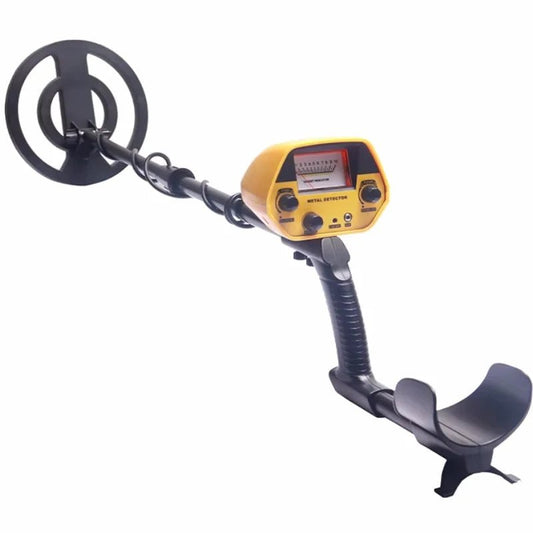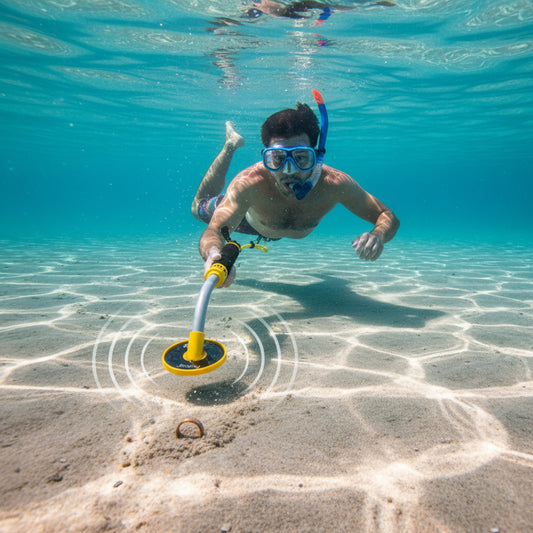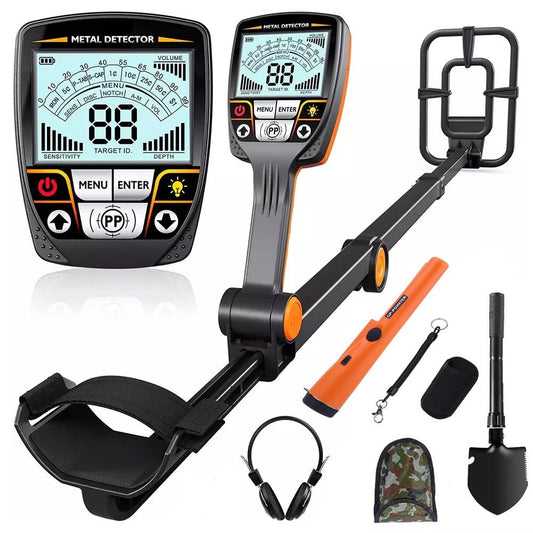
Metal Detecting in South Africa: Gold, Beaches, and Legal Tips
Share
South Africa is a dream destination for metal detecting enthusiasts, offering a blend of legendary goldfields, stunning beaches, and a rich tapestry of history.
Whether you’re hoping to find gold, lost jewelry, or relics from the country’s colonial and Boer War past, South Africa has something for every treasure hunter.
This guide covers everything you need to know about metal detecting in South Africa, including legal tips, top locations, gold prospecting, and safety advice.
Is Metal Detecting Legal in South Africa?
Metal detecting is legal in South Africa, but with important restrictions. The country’s laws are designed to protect its cultural heritage while allowing hobbyists to enjoy the thrill of discovery.

Key legal points of Metal Detecting in South Africa:
-
Beaches: Metal detecting is permitted on public beaches. These are the most accessible and popular places for hobbyists.
-
Private Land: Always obtain explicit permission from landowners before detecting on farms or private property.
-
Heritage and Historical Sites: Detecting is strictly prohibited at heritage sites, national monuments, and archaeological sites. These areas are protected by law.
-
National Parks: Metal detecting is not allowed in national parks or nature reserves.
-
Gold Prospecting: Recreational gold prospecting is allowed on private land with permission. Commercial gold mining requires government permits and is subject to strict regulations.
Best practice: Always check with local authorities or municipalities for specific rules, as some regions may have additional restrictions.
Best Beaches for Metal Detecting in South Africa
South Africa’s coastline stretches over 2,500 kilometers, with countless beaches perfect for metal detecting. Here are some of the best spots:

Durban Beaches (KwaZulu-Natal)
Durban’s Golden Mile and surrounding beaches are busy year-round. High foot traffic means a steady supply of lost coins, jewelry, and watches, especially after weekends or holidays.
Cape Town Beaches (Western Cape)
Beaches like Clifton, Camps Bay, and Muizenberg are popular with locals and tourists. Early mornings or after storms are the best times for metal detecting, as the sand is less disturbed and new treasures may have washed up.
Port Elizabeth (Eastern Cape)
Known for its long, sandy beaches, Port Elizabeth offers great opportunities for finding modern coins, jewelry, and the occasional relic.
Richards Bay and Ballito
These northern KwaZulu-Natal beaches are less crowded but still popular with holidaymakers, making them ideal for peaceful detecting.
Beach detecting tips:
-
Use a waterproof detector and sand scoop for efficient searching.
-
Detect at low tide for more exposed sand and better chances of finds.
-
Focus on areas near entrances, lifeguard stations, and where people gather.
Gold Prospecting in South Africa

South Africa is world-famous for its gold. The Witwatersrand Basin, Free State, North West Province, and Mpumalanga are legendary gold-producing regions.
Key gold prospecting tips:
-
Witwatersrand Basin (Gauteng): This region is the heart of South Africa’s gold rush history. While most commercial deposits are mined out, you may still find small nuggets or flakes in old riverbeds or tailings.
-
Free State and North West Province: These areas have a history of alluvial gold deposits. Research old mining maps and seek permission from landowners.
-
Mpumalanga (Pilgrim’s Rest): A scenic location with a gold panning heritage, ideal for combining history with recreational prospecting.
-
Permits: Recreational gold panning is allowed with landowner permission. Commercial mining or use of heavy equipment requires a government permit.
Always research local laws, fill in holes, and respect the environment when prospecting for gold.
Learn more about how to metal detect for gold.
Other Top Spots for Metal Detecting

-
Old Boer Sites and Outspan Areas: South Africa’s colonial and Boer War history means there are many sites where relics, coins, and old bullets can be found. Always avoid protected heritage sites.
-
Farms: Many South African farms are old and may yield coins, relics, and even old tools. Permission is essential.
-
Urban Parks: Some city parks allow metal detecting, but always check local bylaws and avoid digging in protected or historic areas.
Safety Tips for Treasure Hunters

-
Stay Hydrated: South Africa’s sun can be intense. Bring water, sunscreen, and a hat.
-
Be Aware of Wildlife: Watch for snakes, insects, and other wildlife, especially in rural or bush areas.
-
Detect with a Buddy: For safety, especially in remote areas, bring a friend or let someone know your plans.
-
Respect the Environment: Always fill your holes and remove any trash you find.
-
Travel Light and Secure: Keep valuables secure and be mindful of your surroundings, especially in urban or isolated areas.
Responsible and Ethical Detecting
-
Never detect at heritage sites, national monuments, or archaeological zones.
-
Always obtain permission for private land.
-
Report any significant historical or archaeological finds to authorities.
-
Leave every site cleaner than you found it.
What Can You Find?

Common finds in South Africa include:
-
Modern coins (rand, foreign currency)
-
Jewelry (rings, bracelets, necklaces)
-
Watches, sunglasses, and electronics
-
Relics from the colonial and Boer War eras
-
Gold flakes or nuggets in historic goldfields
Conclusion
Metal detecting in South Africa offers a blend of adventure, history, and the thrill of discovery. With open laws for beaches, legendary goldfields, and a rich past, South Africa is a top destination for treasure hunters. Always respect local regulations, secure permissions, and hunt responsibly—who knows what treasures the sands and soils of South Africa may reveal?




